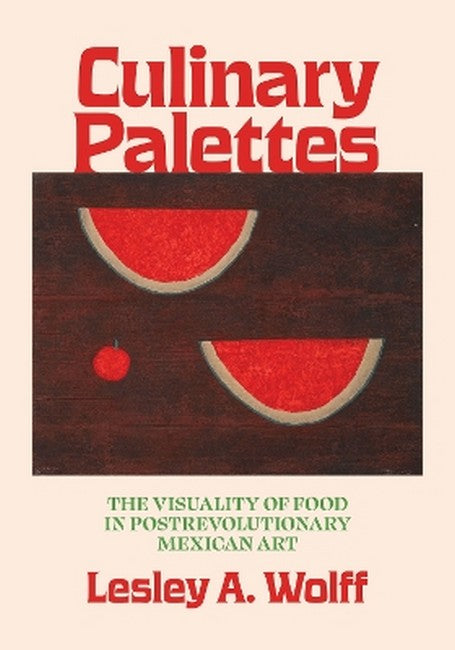Lesley A. Wolff is an assistant professor of art and design at the University of Tampa. She is coeditor of the volume Nourish and Resist: Food and Feminisms in Contemporary Global Caribbean Art.
Request Academic Copy
Please copy the ISBN for submitting review copy form
Description
List of Illustrations Prologue Introduction. Entremeses Chapter 1. Bebidas: Pulque, Breast Milk, and the Nation Chapter 2. Guisos: Mole Poblano, a Blend of Colonial Labor and Modern Leisure Chapter 3. Frutas: Mr. Watermelon/SeNor SandIa and the Roots of Corporate Capitalism Conclusion. Bocadillos: Concentric Colonialities, or a Tale of Two Mexicos Appendix. Recipes for Mole Poblano or Mole de Guajolote Acknowledgments Notes Bibliography Index
Culinary Palettes is an exciting book that takes the scholarship on post-revolutionary Mexican art and culture in a promising and creative new direction. It situates the intersection of visual studies, art history, and food studies as they pertain to post-revolutionary Mexico and the visuality of foodways-in art, cookbook illustrations, menus, tourist ephemera, restaurants, home economics manuals, and advertisements that were essential for imagining the nation. - Mary K. Coffey, Dartmouth University, author of How a Revolutionary Art Became Official Culture Culinary Palettes offers sharp readings of Mexican modernity since 1940, a period of intensive but uneven development, entailing processes of industrialization, migration, and consumerism. Wolff's notion of "foodways as visual praxis" and emphasis on embodiment and cultural labor make a strong contribution to a still-emerging scholarly literature emphasizing tensions between materiality, visuality, and coloniality. As a scholar of Mexican art and as a passionate student of Mexican foodways, I found this to be a very creative and exciting work of scholarship for the fields of art history, cultural studies, and food studies centered in Mexico. - George F. Flaherty, University of Texas at Austin, author of Hotel Mexico: Dwelling on the '68 Movement

